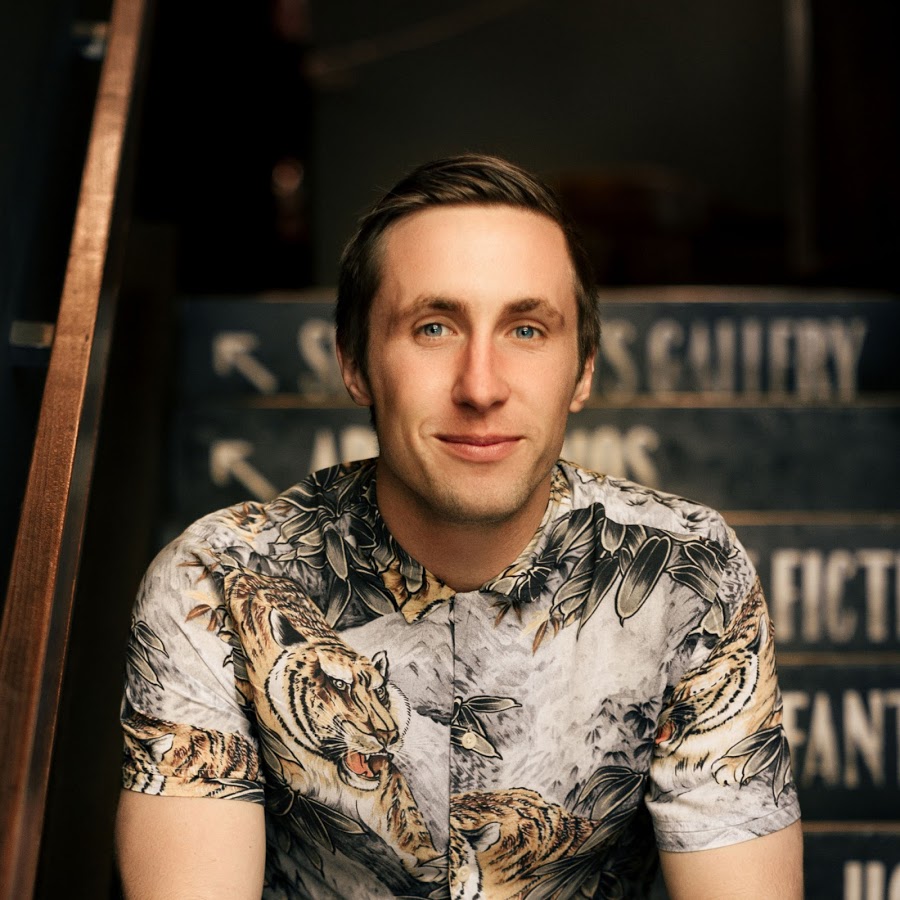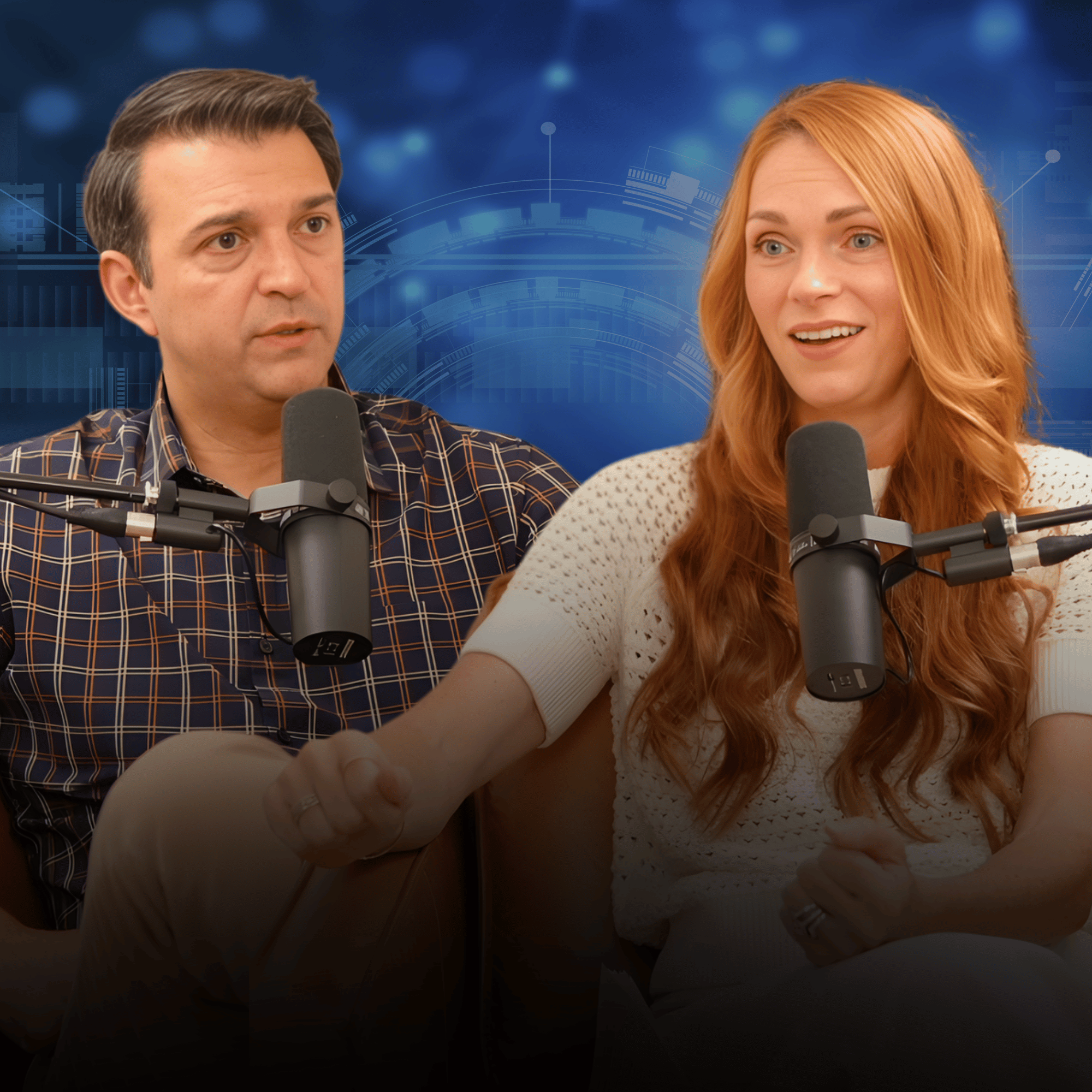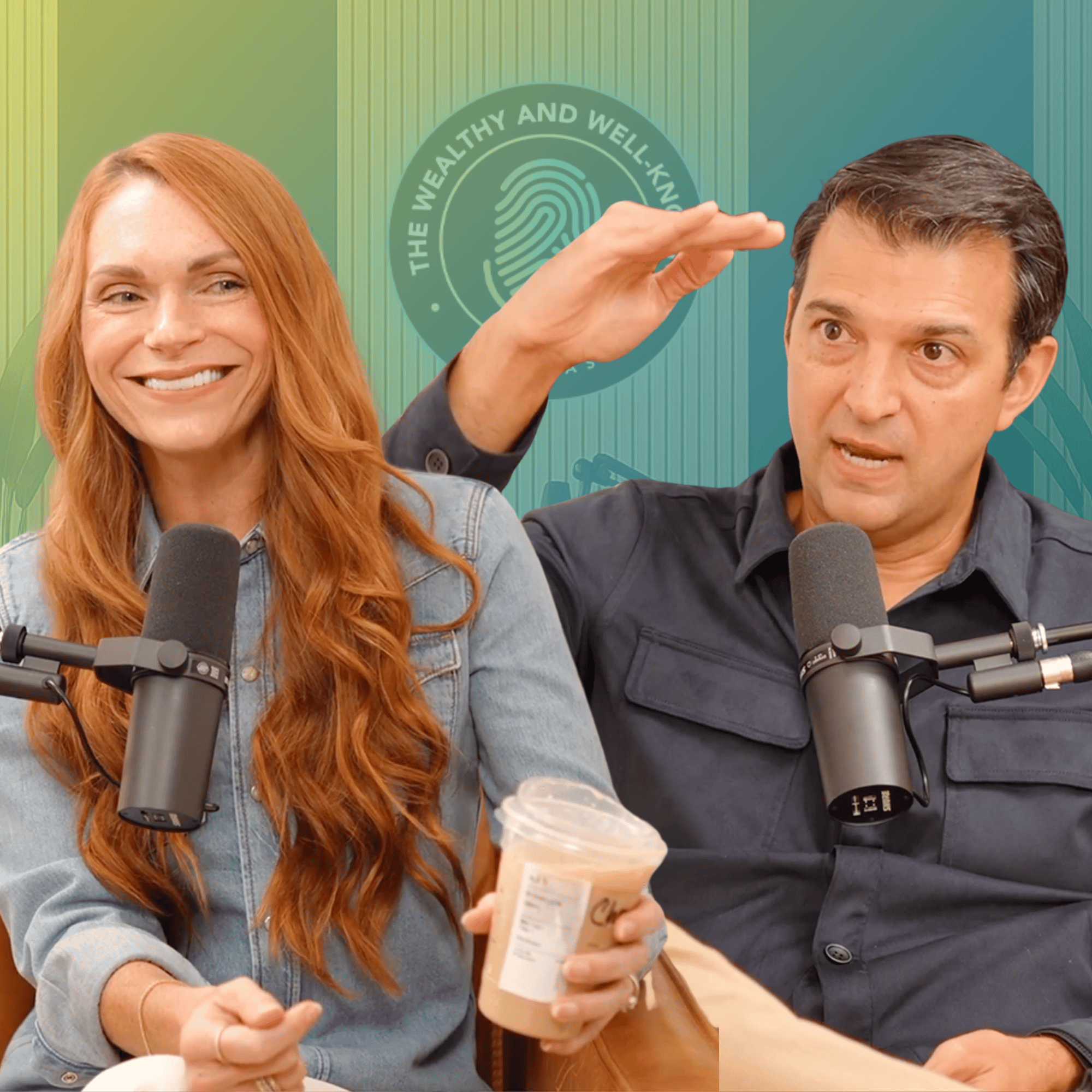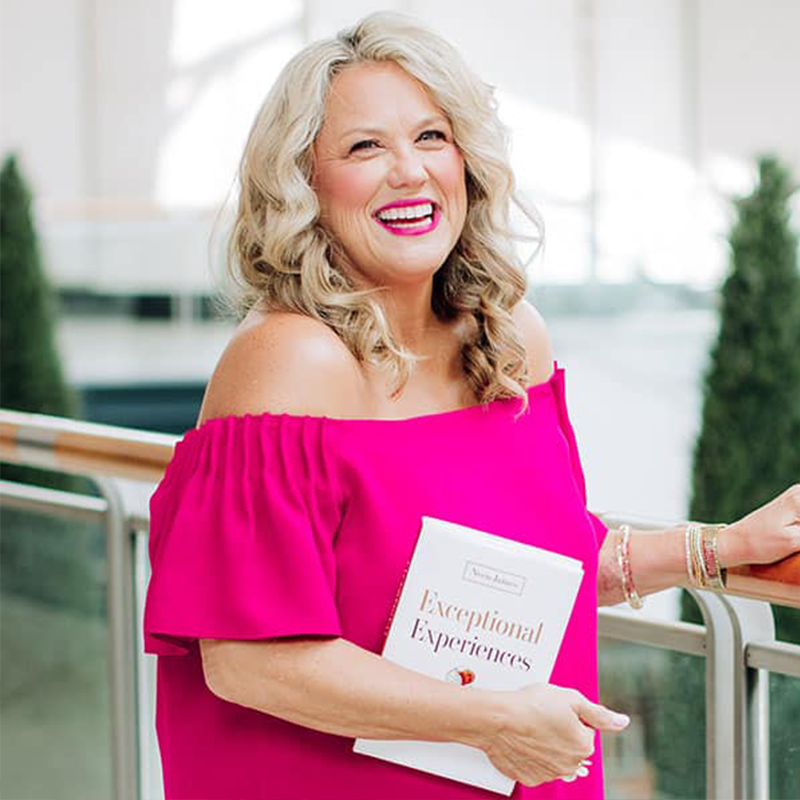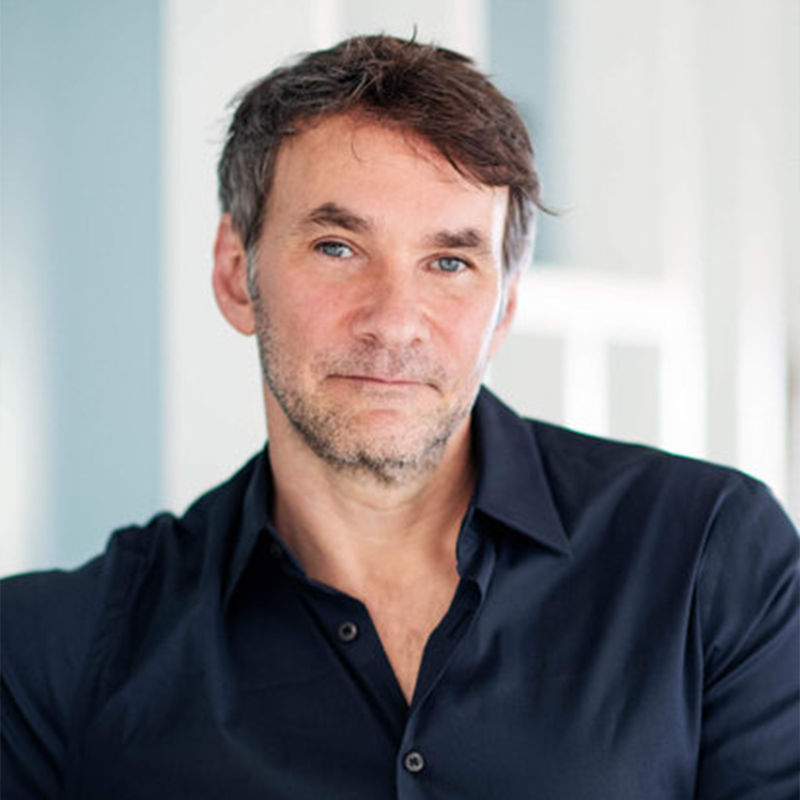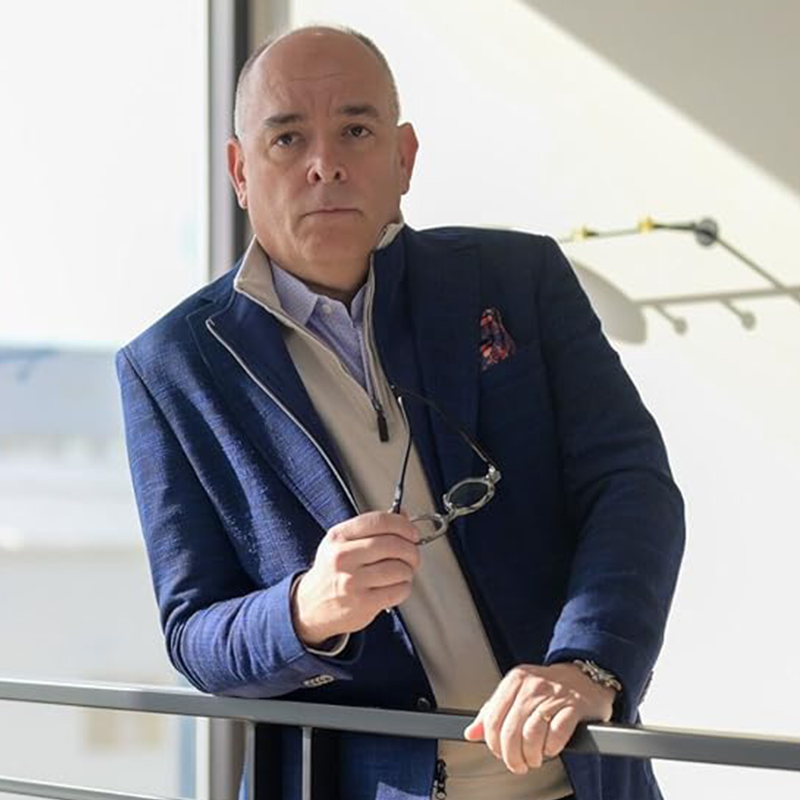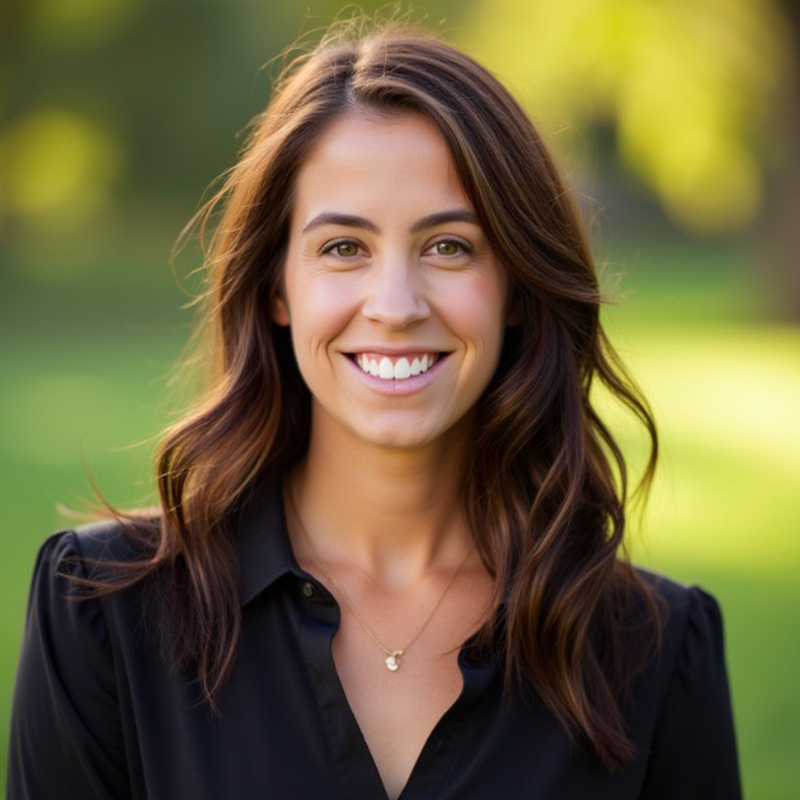Rory Vaden here. Thank you so much for tuning in to listen to this interview. We are so excited to bring you this information and wanted to let you know that, Hey, there’s no sales pitch coming. From anything that we do with this is all our value add to you and the community. However, if you are somebody who is looking for specific strategies on how to build and monetize your personal brand, we would love to talk to you and we offer a free call to everyone that’s interested in getting to know us and is willing to give us a chance to get to know them and share a little bit about what we do. So if you’re interested in taking us up on a free strategy call, you can do that at brand builders, group.com/summit. Call brand builders, group.com/summit. Call. Hope to talk to you soon on with the show.
The more time goes on. The more I start to feel like the old man in this industry, in this space and Chandler bolt is one of the people that makes me feel that way. Because when I met him, it was years ago, maybe like six years ago. And him and his brother, Seth, who is one of the, the, one of the members of my, one of my favorite bands, if not my, the favorite brand need to breathe, they were doing a book together and they were on my old podcast. And I just was like, man, there’s something about this guy. Like he’s, he’s legit, they’re they’re legit. And fast forward to today. Chandler is now the CEO of self publishing school and self publishing.com. So, you know, he’s written six best selling books, but self publishing school is like the premier world’s premier leader in helping people publish and self publish a book and understanding how to do it.
What’s the process, all the nitty gritty details. Where do we go? How does it work? Which is what we’re going to talk about today, but he’s also an investor, an advisor. And as an entrepreneur, this company, you know, they’ve got like 30 plus team members. They’re an Inc 5,000 company, three years in a row. He also hosts a couple podcasts to seven figure principles podcast and then the self-publishing school podcasts. And it’s so weird, cause like, I just am proud of proud of this guy. And and he’s a baller and y’all need to know him and you need to know what they do. A lot of people don’t realize this, but I self published six pieces of six different bodies of work. They weren’t all books before I launched take the stairs. So most people think of that as my first book, which hit the New York times and I was 29, but I had been self publishing since I was 22.
And we don’t hear that story a lot. So this is the guy and we got them here live. So Chandler, welcome to the show, Roy. Great to be here, man. Thanks for having me just proud of you, bro. And I, you know, I have to say at this point, I really have, in some ways been out of the self publishing game, you know, other than our clients do in it and, and, and from a, from a distance like watching it. So I guess, first of all, let’s talk about why self-publish, why, and when because there’s always that like, you know, Hey, I want to be a bestselling author and you know, do I have to have a traditional publisher? Do I need an agent, you know, is self publishing? Does it work? Is it, is it legit? Like, can you just kind of talk about that conceptually
For sure. And I think, and I think probably the first, the most important decision or question for most people here is like, even before then, like is a book, one of the best things I can do to grow my brand or to grow my business. Right. And then you get into the self publishing versus traditional publishing and it’s like, that’s kind of a mechanism or vehicle to take you there. Right? So like I almost look at it as like two independent questions of like is a book, one of the best things I can do to build my brand, to build my business. And we talk about this all the time, like to get, truly get more leads, sales and referrals, which I believe that it is like, you know, I believe that books changed lives. I believe that, you know, they changed the life of the author and also the reader, I believe, you know, they’re one of the best ways to set yourself apart, get your foot in the door.
Like we always joke. It’s kinda like the key that opens this door to Narnia, like this magical world, all these opportunities that only exist for published authors, right? If you have made that decision, then it’s just a matter of which path are you going to take and self publishing versus traditional publishing and like the long and short of it is, and this is not just because I run a company called self publishing school or own self publishing.com is as long as sort of it is that self-publishing makes more sense for most authors, 99.9% of people, unless you can get a big advance. And and, and that’s it, or, and, or you care about distribution like international distribution, especially that’s the only time it really makes sense to, to traditionally publish. Otherwise you’re going to be better off self-publishing and, and, you know, it’s kind of like, maybe you’ve heard the the sayings like banks only loan money to people who don’t need it. Right. It’s like, well, publishers only give posting deals to people who don’t need it and who can sell the books without them. So if you’re Oprah, Seth Godin, Rory Vaden you can get a big advance. Awesome.
Again, I just say, you know, I, I get about the same size advances, both Oprah and Seth Godin. I’m, I’m pretty sure. My, my advances are, are I’m sure they’re the same as what Oprah gets definitely in the Obama
Range, like selling copies on the first day
In all seriousness. I agree with what you’re selling. I think self publishing makes the most sense for the Mo for most authors. And the thing that we tell people is we say, look, if you can’t move 10,000 units on opening week and have a plan to move about 50,000 units within two years, you’re not ready for traditional publishing and you don’t really need it. And the economics of it don’t really make sense. So, you know, I totally, even though I love, I love commercial publishing and I, I love my publisher in that. I think self publishing is like a critical, essential, necessary step in the journey. And then people like Seth Godin, you know, they’re kind of going well, once I’ve done a few commercially published books, they’re going back to self publishing.
Exactly. For some people it’s a step in the journey for other people. It’s the journey, the journey. Yeah. Like how L rod, I mean, obviously that’s one of the most, one of the biggest self-publishing success stories, but he’s sold millions of copies of that. Self-Published and so really, I mean, I think to just like, bring this full circle for people when it comes down to is the time that it’s going to take you the royalty rates that you’re going to make and the cost of published, like those are the three bigger buckets. And so, so it’s traditional publishing is ironically enough, like actually going to take longer. Most people don’t know this is going to take you two plus years. They’re not going to do any marketing of the book. People think that the publishers will market the book they want. And, and then there’s the cost to publish, which, you know, you’ve got to cover that yourself if you’re doing it on your, on your own. So that might be, you know, a couple to a few thousand dollars.
Yeah. Yeah. Talk, give me, give me the details there. Right. Cause if someone’s listening, going okay. If I start looking at self publishing seriously, realistically, I mean, that is one thing that is awesome about commercially publishes. We’re not paying the cost of the editor to the graphic design, the printing, the warehousing, the shipping and those are big costs. Cause there’s a lot more volume, but when you’re self publishing, you also can do a hundred copy print run, right? Like how does that, what are the, how much does that actually cost and, and who does it and how do you do it?
Yeah. Screw all great questions. So there’s the cost of of creation and then cost of production, if you will. So the, so if you get a traditional publishing deal, you’re going to agent then to hopefully get a deal and get in advance. And then they’re going to cover the cost of that for you. Then there’s this middle ground, which is like hybrid or vanity press, which, you know, that might cost five, 10, 15, $20,000 a year paying someone to pay the books. So it’s like part service, part publisher, and then self publishing. Obviously you’re paying for it yourself. And there’s really three main buckets of costs. There’s there’s cover design, editing and formatting. Those are the main three. And if you don’t know what you’re doing, you might, you might spend five, 10 grand. Plus if you do know what you’re doing, you can do it for as cheap as a few hundred bucks, if you’re like really on the cheap and really bootstrapping or you’re typically a couple thousand bucks kind of in that range give or take is, is where we see people land. But that
Was cost of creation. You’re saying
Creation. Yeah. Yeah. So of, of actually creating a book that’s ready to be printed and shipped, and then you have the opportunity to go if you’re self publishing print on demand, so they’ll print it, package, ship it when someone clicks purchase, right? So you don’t have to hold inventory or you can do, like you said, runs of a hundred books or a few hundred books or whatever, but that’s the benefit of print on demand is you don’t have to hold inventory. It’s like, we all know someone who has like 2000 copies of their book in their garage and have had those copies of their book for like years. And so that’s the benefit there from a self publishing perspective is you don’t have to pay to carry that inventory. So that’s, that’s kinda how that works.
All right. So, you know, when you think about cost of creation, I want to, you know, cover design is obvious, right? It’s like you can hire the world’s best graphic designer and it’s 50 grand, or you can hire someone on Fiverr and it’s five bucks. So there’s the whole range there. Editing’s kind of the same way. It’s like reputation and all that sort of stuff. What is formatting? Because that was the thing that has always like, in the times I’ve self published. I was like, Holy crap. Like there is a lot more work here than I realized that there’s so many details of like, what’s the gutter size, which, you know, like between where the book folds, like how far the tech sits in the crease of the book. So when you say formatting, you’re saying you’re paying someone to like lay the book out to be ready for print.
Yeah. Totally. And funny timing, hopefully can you, yeah. Since it’s a big difference, actually. So one thing that we say all the time is your self published book shouldn’t look self-published right. And so we want a traditional quality book that just happens to be self published because the fact is not many people know. But what’s, self-publishing, what’s traditionally published, but what, what you really want to do here is a format, or is someone that takes like, think your word doc, and kind of what you alluded to a second ago. It was just like, there’s the margins, there’s the bleed, there’s the, all that stuff. And then they format it to be a, what, like a good looking book or a well formatted Kindle book. So essentially it’s making like th and, and it can be any variants of just like, Hey, literally just make this a book on the very simple side of things. And then, and then artistically, it could be as complicated as like, Hey, I want images here. And I want this format of this way. And I want, you know, these and graphs and stuff like that. So they’re kind of Jerry’s and complexity, but that’s the basics.
And so is that part of what you guys help people do is like pair them up with those people, like who actually do that, or do you just go on, do you just go on Upwork and grab someone?
Exactly. So our goal, like when we work with someone, our goal is, is, is three things like number one, we want to we’ll save them hundreds of hours in the process. Number two, we’ll say them hundreds, if not thousands of dollars in book production costs. So like stuff that we’re going to spend money on anyway and then number three, it’s, we’re gonna help them make more money by selling more books. And, but then also using a book to drive business. So that’s specific to number two, right. Which is you know, we’ve negotiated exclusive discounts since we have like our book production partners. And so we
Very similar to what brand builders group does. We’ve got, like, these are our copywriters and these are our podcast people. And these are our social media, like vendor partners. Exactly. Yeah. Yeah. That’s cool. I mean, it’s worth a tremendous amount of just the pain of finding these people and knowing who’s legit and like, do they actually do what I need them to do? And that’s, that’s half the battle. So, and then, and then when you talk about print it, packet, ship it. Okay. So if I have a word doc, so let’s, let’s say I came to captivating content for brand builders group, and I outlined my deal. And then I joined self publishing school and you’re going to walk me through from that kind of outline and concept all the way to completion. At some point I have a word doc, then I send it to a format. That person lays it out. They probably, the finished products is probably a PDF. Right. Okay,
Exactly. Yeah, yeah. A PDF. And then there’s on the, I mean, this is getting into the minutia, but on the ebook side of things is a dot EPUB or.mobi file. And then on the flip side, it’s, it’s a well formatted PDF. That’s really an InDesign format, so that can be ready to be printed. Exactly.
And so then when you go to print it, so what, what does that mean? Like, do I just like run down to Kinko’s and print it, or you, you find like any printer or there’s people who specialize in printing self-published books or does Amazon print it or do you, or, or is there somebody who will print it, pack it and ship it all in one place? Or like is the answer yes. To all of those things? Yeah.
Yes. I, I, yeah. And so really it’s, it’s like there there’s, you could go down any path and there’s any of those things you can do. We recommend, we recommend Amazon from like a full, full perspective. So like they’re print on demand through KDP print, they’ll print it, pack it and ship it as soon as someone like your eye goes on to Amazon and says, Hey, I want to buy this book. They’ll they’ll handle the rest.
Okay. huh. So, so if you do it through Amazon, then basically you just kind of like upload the files, like for the, and everything and set the dimensions. And then Amazon will, like, they don’t really store it in a warehouse because they just print it when a sale comes through. But so you don’t have like warehousing costs, like you would with a normal book where you got to, like, the publisher has to print a bunch of books and put them in warehouses all over the country. You’re not dealing with any of that. And it’s already do. They automatically like index it in Amazon also. Exactly. Okay. So that’s, so that’s why Katie P is like, just the easiest on the production side, if you have it formatted properly. But then the key is to have, like you said, how do you make sure it doesn’t look like, you know, chintzy, self published book. And I, you know, I use that term respectfully, all of my initial stuff did, I mean, it was like, it was embarrassing. Like my first books, I, you can’t find them anywhere deliberately. You didn’t want anyone to be able to find them.
Yeah. So I mean really good cover and good formatting. Like those are the two things, like if I’m going to spend, I mean, I spend good money on editing too, but like pay for a good cover designer and then pay for a good format. Or that knows what they’re doing. This is not your friend or relative or whoever else people try to do that. Don’t do that. Like play, pay a professional and it doesn’t have to be crazy expensive, but pay a professional. And that’s what helps make the quality really. I mean, it’s, it’s indistinguishable.
And, and so when you were talking about earlier, like you might be in a few thousand bucks, this is really where your cause. Cause when you say you’re in a few thousand bucks, that’s for cover design, editing and formatting. Exactly. You’re not, you’re not having to shell out 20 grand to print inventory because it’s just, there is no inventory unless someone goes to Amazon and buys it.
Exactly. Yeah, exactly. And that’s a big benefit.
And then, and then what about buying your own book? Like do you just go to, do you literally just log on to Amazon and go, I want 50 copies and send it to my house. Yeah,
Yeah. You can do the same thing. And actually we’re, we’re exploring some different options right now that are more cost-effective. Cause I think it used to be about $7, 15 cents landed. Like the book landed to someone and I would pay, you know, three, $3 and 25 cents a book and then plus shipping. And that was landed if I shipped them individually. So that was pretty simple. But now we’re just, we’re we’re re-exploring this to say, Hey, where can we save a dollar or two, a book? Can we, can we wholesale print somewhere and then fulfill somewhere else? Or let’s like exploring alternatives of like print, pack, ship kind of thing. But, but yeah, I mean you can the, the most simplistic way to do it, it’s just, I can ship a hundred copies, 200 copies. I do this for speaking gigs all the time directly through KDP print.
Okay. And then if you’re shipping bulk, they don’t charge you the same shipping per book. Exactly.
Yeah. So your discount cost goes down a whole lot more. I mean, you might get, you might be four or five bucks, a book landed maybe a little bit more when you’re shipping in bulk. So it’s like it’s yeah.
So functionally speaking here, you’re like a word document and then some editing and a PDF away from a book, like that’s really a hundred percent gap these days. I mean, there’s the ideas and all that sort of, you know, the content stuff. Of course, but this is doable. I mean it’s doable more today than ever before, ever by far.
Yes. And not only in my opinion, is it doable, but it’s, I truly think, and I know it’s like, Oh cool. The book guys talking about how amazing it is to do books. But it, like, I truly think it’s one of the best things that you can do for your business. It, and I, I mean, I think this is why you guys integrate this as part of your brand building strategy. Cause you’ve seen the impact of this for you personally, but then also for so many other people, I mean, whether it’s Lewis house or it’s like the P S people build entire brands off of books, but not only that, it’s like, it’s, it’s the, it’s kind of this cataclysmic mechanism. If you will, to get your foot in the door to start doing podcasts interviews and start doing speaking gigs to start, like, at least it was for me. And so that’s, and, and we’ve seen that for a lot of people that we work with. It’s like, it’s, it’s one of the first steps and sure. It might not be the first step. For some people it is a, for some people represents like, Hey, I’ve finally consolidated what I believe in, put it in a book. And this is like my first step into this world. And for others, maybe it’s a step along the journey.
Well, like we, we work with like a lot of financial advisors as an example, right? And it’s like, they’re not trying to sell video courses and all that. They need a credibility piece that takes their 25 years of knowledge and they hand it to somebody and go, and somebody goes, Whoa, you’re an author. And like, to what you said, if it doesn’t look chintzy, the average person on the street has no idea if Simon and Schuster made that book, or if you printed it with Amazon, if you, if you do the things you’re talking about, you pay the money to have it nice. They’re going to go, Whoa, like it’s a big deal. So I liked that you raise the bar there on that like production piece of it.
Yeah. And then you plugged that book into your business and you watch how your business grows. I mean, it’s that financial advisor there, their close rate might go from 25 to 37% or their average order value might go up 20% or they’re getting more leads. Now they’re getting more referrals because now all of a sudden, and this is for, especially for businesses like this, or any brick and mortar businesses, we say, Hey, give two copies of your book to every single new customer one for them. And so now the onboarding process is shorter with that customer because if the book is your methodology like that, you’re going to save your team a whole lot of time because they’re being indoctrinated in that methodology. And you give them the second copy so that they can actively refer you business. So you turn customers into active refers, and they’re not going to go around town, handing out your business card, but they will hand a book to someone else and say, Hey, you should read this. Like, why don’t you try to start looking at your retirement, like check out this retirement book. Like I think it would be really helpful for you or insert book that solves whatever problem that you solved. And it just, you make it so much easier to refer business your way.
So, okay. The time is flying by. I knew this was just fly by, but this has been so helpful, I think because there’s, I think there’s still a little bit of a black box and most people there’s a lot of fear going on here. I want to try to spend a couple minutes on the best seller stuff. Okay. So let’s say you go through this, this birthing process of creating this thing, we call a book and then how does the bestseller list work? You know, and, and when we talk self publishing, you know what we tell people and, and, you know, it’s kind of like, you’re really talking about an Amazon bestseller. That’s really the game. That’s really what we’re going after with a self-published book. How does the Amazon bestseller list work? What does it take to hit it? How realistic is it? Is it worth the money? Like how many units are we talking about to, you know, like tell us a little bit about that
Great question. So there’s, there’s really two ends of the spectrum, right? There’s, I’m an Amazon bestseller and underwater basket weaving or some other obscure category,
Which is like a sub category of a sub category kind of.
And that’s where I think the term has really been ruined. And you have so many people just claiming that. And then there’s the other end of the spectrum, which is New York times. Right. And, and I think what’s important and it’s very impressive that you hit the list. It’s very hard to hit. You know, the DOE like you’ve got to sell 10 to 12,000 copies within week one, but it’s also like kind of this breakdown of like, some of them needs to be mom and pops to store some needs to be bulk purchases, some needs to be on Amazon, some of these. And so the fact of the matter is when you look at the landscape of lists, you’ve got kind of four main, you’ve got New York times, you’ve got USA today, wall street, journal bestseller, and then Amazon right now, New York times, most people chase that list.
It is an editorial list, which means it’s, it’s an opinion by the New York times, it’s not an actual bestseller list. Whereas the USA today bestseller lists is the is the most factual, accurate, like number of books sold. So you can make the USA today bestseller list and you can make the wall street journal, bestseller list self publishing, a book. It’s, it’s not likely if, if you don’t sell copies, obviously like the average self-published author, now, you’re not going to make one of those lists if you do it well. And so thousands of copies in week one, you have a great chance to hit one of those lists. But you’re right, functionally, like we look at Amazon bestseller and for most people, like that’s the most likely case scenario. And when we look at that, it’s okay, let’s get number one in a significant category on Amazon. That’s not underwater basket weeding or something
Business, how finance, something like that, those relationships, those are legit. Yeah. Yeah. And they’re, it’s kind of like they’re sub categories. They’re not sub sub sub categories kind of S kind of a thing. Yeah.
They’re meaningful categories with bills,
Books, how many units do you need to move? And is it like within a certain time frame and that kind of stuff,
If you move hundreds within the first day you have a chance depending on the category and then this, and there’s calculators online that, that kinda calculate like, Oh, the number one book in this category probably sells X amount. But definitely if you sell a thousand books within the first few days, you will hit number one and a lot of significant categories,
Kind of like how I said, w if you can move 10,000 units in week one, that’s where you’re like, let’s talk, let’s talk, literary agent let’s talk publisher. Yeah. And then it’s like, if you can figure out a way, how can I move a thousand units in, in, within the first week? That’s like, okay, let’s go, let’s go blow up a number one, Amazon. Like, that’s what it is.
Exactly. Exactly. And what I think is super important is, is we talk about this all the time is like kind of this concept of the the Toyota Camry and the sports car launches. And most people look at book launches like a sports car. It’s fast, it’s sexy. It burns up a lot of fuel AK energy. And it’s gone in a flash, right. It’s like, shoo, okay. That was our launch week. Right. But we really look at like, how do we create a Toyota Camry type book that keeps selling month after month after month? And how do we in our fundamental marketing, yes, we want to have a strong week, a strong launch week, but like, how do we make sure that we’re setting up to where longterm, this thing’s going to keep selling? So there’s a lot of strategic marketing stuff, but building virality into the book, like a lot of just kind of fundamental things there. And so really that’s what I would encourage people is like, make sure that you’re solving a fundamental problem, a painful problem that people have, that you get reviews that you, and then that you focus on marketing strategies beyond week one, because that’s where a lot of, I mean, that’s where the money is from both a book sales perspective. Sure. But also from a using this as something that’s like an, a continually driving drive, lead sales and referrals for your business.
Yeah. So this is, this is part of why we had Chandler on, obviously I’ve known him for years. Yeah. I know his brother like these, these are legit guys in the stuff they’re talking about. We believe in, we we’ve done. We do. And you know, th that’s what brand builders exists is to grow your platform. It’s the, we’re playing the long game and, and that is why Chandler’s here. So here’s one of the things that Chandler and I talked about, his team will do a free call with you if you are seriously considering, okay, what are the next steps look like? If you go to brand builders, group.com/s P S for self-publishing school go there, just like, just like most many of our clients did, you know, they’ll do a first call with you. They’ll figure out where you’re at, what you’re up to. And then they’ll kind of go, here’s some ideas, here’s some pointers. And if, if you’re a fit, then they’ll, they’ll tell you how it works. But brand builders, group.com forward slash S P S as in self publishing school. And, and and so you’re, you’re willing to do a call with people just to help them sort that out. Right. Chandler.
Totally. Yeah. And our goal is, I mean, it’s, I think it’s, it’s, it’s a helpful 45 minutes. It’s get clear on your goals for your book, your challenges with your book and your next steps. So how do we take this from something that you’ve been dreaming about doing, thinking that doing it’s been on the maybe next year list for like five years in a row and, and how do you actually make this happen and make this a reality, but, but in the process of doing that, like save time save money in the process and then, and then create an asset it’s going to build your brand. Which I think is just huge and, and, and a fundamental piece of, of what you guys teach. And I just wholeheartedly believe in the whole process and in this as, as a part of the process. Yeah.
I mean, the book that, it’s a, it’s a, it’s a critical, essential piece and self publishing is this necessary step. And you guys do self publishing better than anybody that, I mean, it’s all you do is why you’re here. Right. It’s why we is like, this is their world. Like they live in self-publishing books all day, every day. So go to brand builders, group.com forward slash SPS. If you’re interested, you know, if not keep hanging around. And then when the time comes, you know, you can take, you can take their team up on it. Chandler man, I’m proud of you, bro. I’m excited. I I’m, I’m, I’m really excited. I think you can help a lot of people in our community with this, you know, important piece, this really important piece of the whole brand building journey. So thanks for being
Here. Absolutely. Absolutely. Really. Thank you so much.




